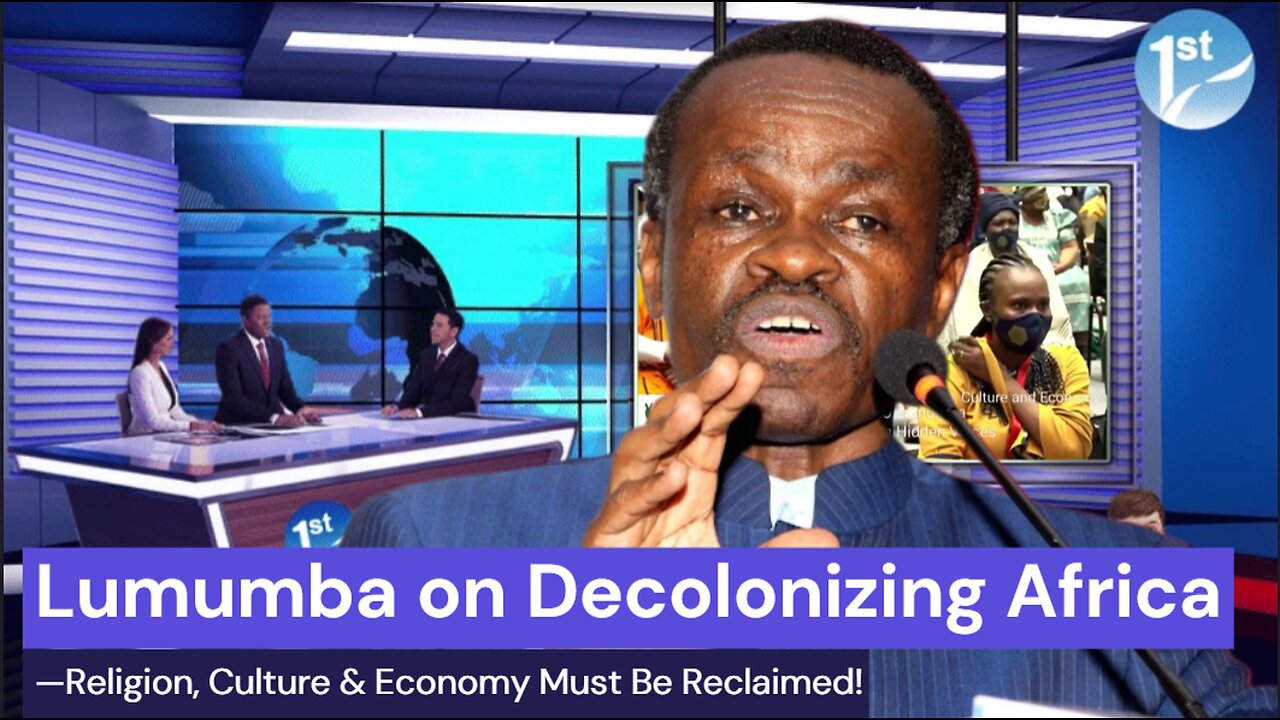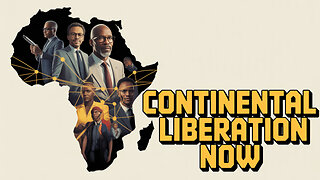Premium Only Content

Lumumba on Decolonizing Africa—Religion, Culture & Economy Must Be Reclaimed!
Lumumba on Decolonizing Africa—Religion, Culture & Economy Must Be Reclaimed!
In this thought-provoking keynote at the 6th Annual Memorial Lecture, Prof. PLO Lumumba challenges Africans to reclaim their spiritual, cultural, and economic identity from centuries of colonial distortion. From misrepresented maps to foreign-imposed religions and economic exploitation, Lumumba calls for a renaissance rooted in African values, knowledge, and unity.
Professor PLO Lumumba’s concept of “Magufulification of Africa”—especially in *Part Two* of his lecture at the University of Dar es Salaam—offers a compelling call for ethical leadership, self-reliance, and political hygiene across the continent.
🔍 What Is Magufulification?
Named after the late Tanzanian President John Pombe Magufuli, the term celebrates:
- Pragmatic governance rooted in African values.
- Rejection of foreign dependency, especially aid and imperialist influence.
- Discipline, accountability, and anti-corruption as pillars of leadership.
- Prioritizing local development over global validation.
Lumumba describes Magufuli as a symbol of African renaissance, urging leaders to emulate his boldness in confronting inefficiency and corruption.
---
📌 Key Themes in Part Two
1. Struggles of African Women
Lumumba highlights post-independence neglect—poor healthcare, lack of clean water, and systemic inequality.
2. Disillusioned Youth
Many young Africans, he argues, face humiliation abroad due to failed promises at home.
3. Emerging Leaders & Political Hygiene
He praises Botswana’s governance while critiquing corruption in other nations, calling for a new generation of leaders with integrity.
4. Reflections on Mugabe & Leadership Failures
Lumumba contrasts Mugabe’s early promise with his later authoritarianism, underscoring the need for ethical leadership.
5. Call to Action
The speech ends with a passionate plea for political hygiene, urging Africans to elect leaders who serve the people—not themselves.
-
 36:44
36:44
First News Broadcast
2 months agoContinental Liberation: Malema Says Africa’s Salvation Lies in Our Hands—Not in Foreign Capitals
142 -
 14:05
14:05
Sideserf Cake Studio
15 hours ago $7.32 earnedHYPERREALISTIC HAND CAKE GLOW-UP (Old vs. New) 💅
32.2K4 -
 28:37
28:37
marcushouse
17 hours ago $2.64 earnedSpaceX Just Dropped the Biggest Starship Lander Update in Years! 🤯
11.5K5 -
 14:54
14:54
The Kevin Trudeau Show Limitless
3 days agoThe Hidden Force Running Your Life
81K14 -
 DVR
DVR
DLDAfterDark
4 hours agoIs The "SnapPocalypse" A Real Concern? Are You Prepared For SHTF? What Are Some Considerations?
9.43K5 -
 19:58
19:58
TampaAerialMedia
15 hours ago $0.32 earnedKEY LARGO - Florida Keys Part 1 - Snorkeling, Restaurants,
17.7K10 -
 1:23
1:23
Memology 101
2 days ago $0.83 earnedFar-left ghoul wants conservatives DEAD, warns Dems to get on board or THEY ARE NEXT
17K52 -
 3:27:27
3:27:27
SavageJayGatsby
6 hours ago🔥🌶️ Spicy Saturday – BITE Edition! 🌶️🔥
48.7K3 -
 26:09
26:09
Exploring With Nug
15 hours ago $11.02 earned13 Cold Cases in New Orleans What We Discovered Beneath the Surface!
47.5K17 -
 27:39
27:39
MYLUNCHBREAK CHANNEL PAGE
10 hours agoDestroying Time.
130K32